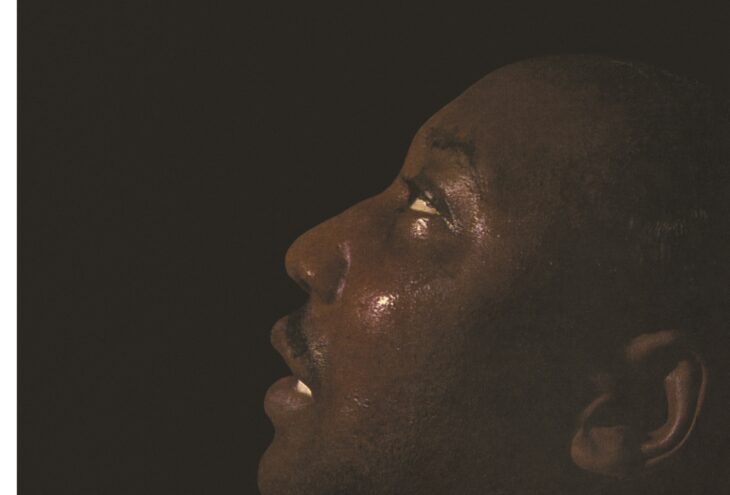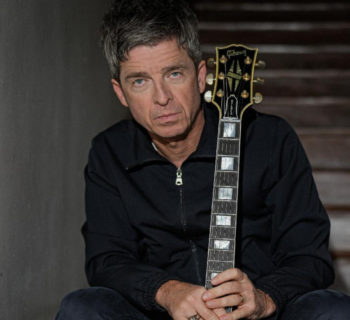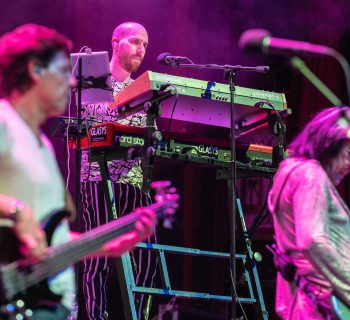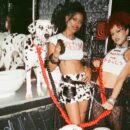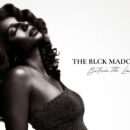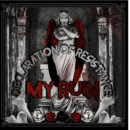The July 2, 2025 Wall Street Journal featured a story on the legendary Chess Records by John Edward Hasse.
He touted the label as the “Birthplace of an Alternative American Sound. Established 75 years ago by brothers Leonard and Phil Chess, the record label focused primarily on black musicians and assembled a body of work that would shape the industry for decades to come. The upstart label called Chess Records began issuing electrified blues, thereby rewiring the sound of American music. In January 1969, weary of the industry grind and eager to invest in TV, the Chess brothers sold the company. Leonard Chess died 9 months later. Phil Chess soon retired from music. Eventually, MCA (now Universal Music Enterprises) acquired the label.”
In 2025 Chess Records, one of the most influential music labels in history, proudly celebrates its 75th anniversary. Many scholars cite the 1951 Chess single “Rocket 88” by Jackie Brenston and His Delta Cats as the first rock and roll recording. And the story of the pioneering label inspired the 2008 feature film, Cadillac Records, starring Beyoncé. From electrifying Chicago blues and rock & roll to stirring soul and R&B, Chess Records helped shape American music and inspired generations worldwide. To mark this historic milestone, Chess will launch a comprehensive 75th anniversary campaign this October with a curated series of audiophile vinyl reissues.
Kicking off the campaign on October 17th are two definitive blues albums, Muddy Waters’ The Best of Muddy Waters, a powerful collection of blues songs that include essential tracks like “Hoochie Coochie Man”, “Rollin’ Stone” and Howlin’ Wolf’s Moanin’ in the Moonlight, the haunting debut that introduced Wolf’s signature growl on classics such as “Smokestack Lightnin’” and “Evil.” Each release will be remastered from the original analog tapes and cut to lacquer by Matthew Lutthans at The Mastering Lab at Quality Record Pressing (QRP). Housed in archival quality tip-on gatefold jackets and pressed on 180-gram vinyl at QRP, it will offer both audiophiles and collectors a premium listening experience.
Speaking to the enduring legacy of the label, Steve Berman, Vice Chairman Interscope Capitol, says “Chess Records didn’t just help birth rock & roll—it gave voice to the legends who defined it. This 75th anniversary series honors that legacy by bringing these foundational recordings back to life, cut with extraordinary care directly from the original masters. These releases are a gift to lifelong fans and a revelation for new listeners discovering the roots of modern music.”
Representing the labels deep and diverse catalog, from the initial offering of Muddy Waters and Howlin’ Wolf the ongoing monthly series will showcase cornerstone releases from legendary artists that will span across its renowned roster. Set for release on November 21st are two genre-defying albums: Chuck Berry’s Berry On Top, featuring fundamental rock & roll anthems that include “Johnny B. Goode” and “Roll Over Beethoven,” and Etta James’ landmark album At Last, an incredible vocal blending of soul, jazz, blues and gospel that contains the timeless title track, “At Last,” (and for which a new analog master tape was recently discovered) and the dazzling classic “Something’s Got a Hold on Me.” Rounding out the initial wave of releases, on December 12th are two influential blues harmonica driven records: Little Walter’s The Best of Little Walter, that showcased his groundbreaking instrumentals on hits like “Juke” and “My Babe,” and Sonny Boy Williamson II’s The Real Folk Blues, a brilliant collection of postwar blues with scintillating tracks that include “Bring It On Home,” and “One Way Out.”
“Chess Records electrified the sound of American music,” says Bruce Resnikoff, President & CEO, UMe, on the cultural impact of the label. “The legendary rhythm and blues label released albums from Muddy Waters to Howlin’ Wolf to Etta James, becoming one of the most influential labels in history. These new albums showcase incredible artists and their legacy on peerless audiophile quality vinyl releases.”
Founded in 1950 by Polish immigrant brothers Leonard and Phil Chess, Chess Records emerged from the south side of Chicago and quickly crossed lines of color and culture to create rhythm and blues music that influenced listeners the world over. Chess’ unmatched roster - and its canny founders - enhanced and transformed the blues from folk music to popular sound.
In addition to a roster that included Muddy Waters, Howlin’ Wolf, John Lee Hooker, Buddy Guy, Willie Dixon, and Big Bill Broonzy, Chess’ spin-off labels included Checker, which issued hits by Little Walter, Sonny Boy Williamson and Bo Diddley; and Argo/Cadet, a home for jazz and R&B artists like Etta James, Ramsey Lewis and Ahmad Jamal.
The influence of Chess Records is felt across generations of popular music—from US west coast recording artists Canned Heat, the British invasion and acts like The Beatles, The Rolling Stones, Fleetwood Mac, Savoy Brown and Eric Clapton citing Chess artists as influences to musicians that include Jack White, Questlove, and Bruce Springsteen.
In celebrating its 75th anniversary, Chess Records is not only recognizing its own rich musical heritage but inviting fans and new audiences to discover their storied roster and the music revolution that was born over seven decades ago in Chicago.
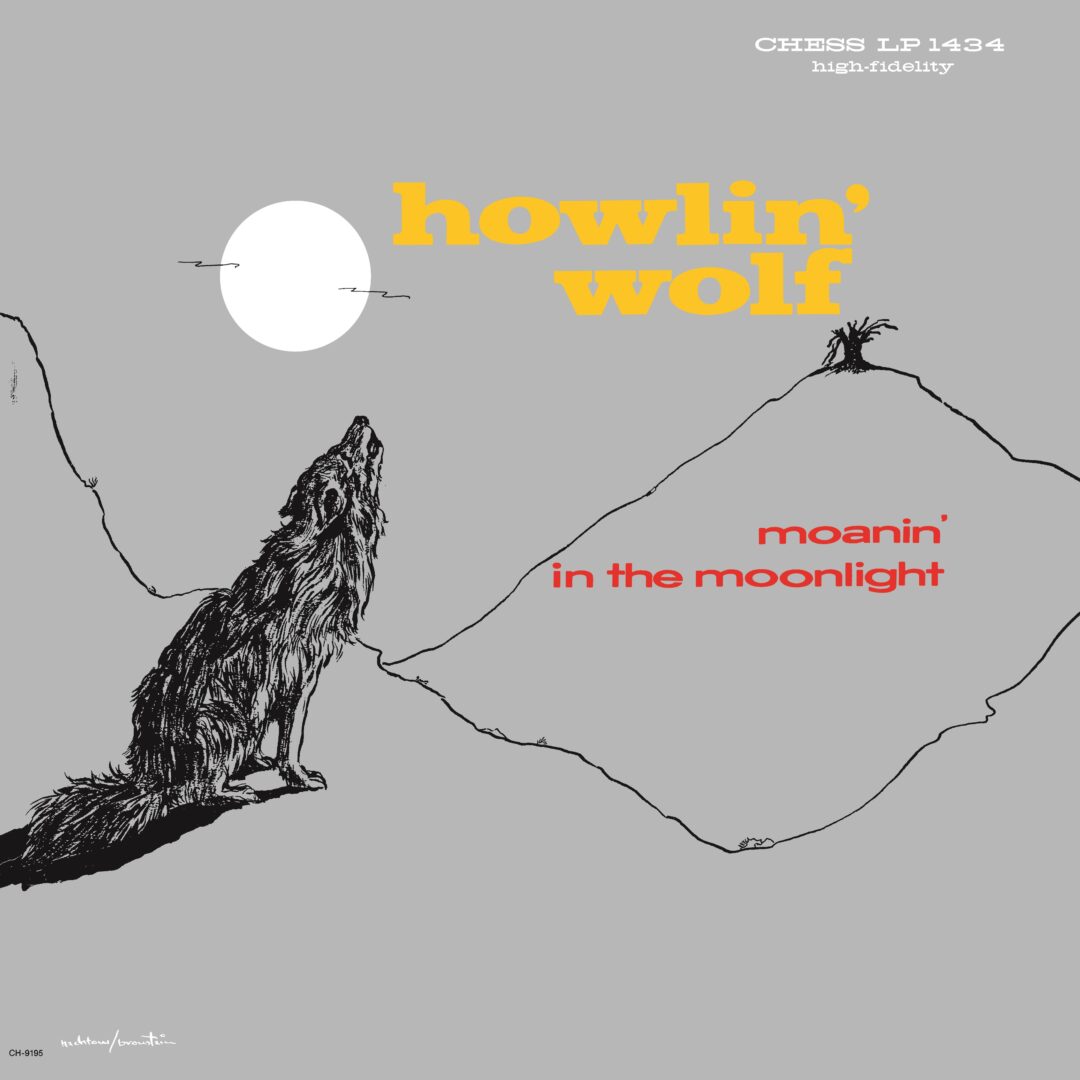
After spending his early years alongside his father and uncle in Chicago studios and record pressing plants, Marshall Chess made his mark at the family label in the late '60s with his own label Cadet Concept producing the important albums Electric Mud (Muddy Waters) and Rotary Connection (self-titled).
Marshall later served as the founder and head of Rolling Stones Records during 1971-1978 and president of music publisher, Arc Music.
The Rolling Stones’ name was inspired by a Muddy Waters song “Rollin’ Stone.” It was suggested by band member Brian Jones during a phone call with a journalist from a UK periodical Jazz News.
Marshall appeared in the Marc Levin-directed Godfathers and Sons (2004) episode of the PBS series The Blues, produced by Martin Scorsese. Chess produced a hip-hop version of the Chess track “Mannish Boy” with rappers Chuck D and Common recording with members of the original Muddy Waters Electric Mud band.
Marshall Chess and I have a bio-regional connection. My parents Marshall and Hilda, were born in Chicago. Marshall’s mother Revetta and my mother graduated from Chicago’s Von Steuben Senior High School. A photo of the school graced the cover of Chuck Berry’s Sweet Little 16 LP on Chess.
During 2009, 2010, and 2024, I interviewed Marshall Chess at length in person in West Hollywood, California at the Sunset Marquis Hotel and by telephone from upstate New York.
In 2025 I was invited to the Kirk Douglas Theatre in Culver City for the premiere of Cypress Hill’s concert film Black Sunday Live at the Royal Albert Hall. I spoke with Chuck D of Public Enemy and he praised the Muddy Waters’ album Electric Mud.
Q: Can you explain the re-appraisal and continued acclaim of Electric Mud, the album you produced on Muddy Waters? I loved the photos of the original LP back cover of Muddy frying his hair. I remember going to a barbershop in South Central on Jefferson Ave. The place had a sign “We Cut Black Hair.” Every barber in Hollywood broke their plastic combs on my hair, so I went to this shop and visited the Dolphin’s of Hollywood record store on Central Ave. I told Muddy the story in 1978 at the Roxy Theatre and he howled.
I’d seen Muddy at the Ash Grove as well in 1971 with Bob Kushner, a guy we called Deacon. As a teenager, I was too much of a purist to absorb the Electric Mud concept and results you achieved with that Muddy LP. Although in the late 1960s he was great on stage with the repertoire and the new louder sound.
A: So, when Electric Mud came out, I had a very good group of radio people and sent it around. My alternative guys. And they all got on it heavy. So, the album took off and blew up. I think we shipped 100,000 units in the first month. It was the biggest album Muddy had ever had. A blues album at that time. And everyone loved it, including Muddy. We were in the record business and we liked that it was selling, ya know. Forget about the music it was just about sales.
It never stopped being a cult record. Worldwide. People have come up to me saying ‘it’s the greatest and I love it.’
Miles Davis said it blew his mind. Guitarist Pete Cosey told me, and because of that album became Miles’ electric guitar player during the rock era. Peter told me that Miles just loved it and mentioned that Miles had a hair dresser, who was also Jimi Hendrix’s hairdresser, and they all played another cut from Muddy’s After The Rain album, which was the second album with the same band, and that Hendrix would play that before he went on stage. The hairdresser told Pete and he told me.
This century, Chuck D really cited the album. Martin Scorsese got the commission to do a blues series for PBS-TV, and hired a director, Marc Levin, who called me up ‘cause he picked ‘Chicago Blues.’ ‘I can’t do the movie without you. Will you help me?’ ‘We went to lunch. Why not. Sure.’ He wanted to know some ideas and I told him I’d sleep on it.
Two days after that I get this anonymous email. ‘Dear Mr. Chess. You may not know me. My name is Chuck D. I was the lead singer and founder of a group Public Enemy. I want you to know that for years, and I’ve wanted to tell you, that for years, that your album, Electric Mud is one of the most influential albums in hip hop and turned me on to all blues. It was my entry. The greatest.’
I forwarded that email to the movie director and that’s how it happened. We put the band together from that album to record with Chuck D. That’s how it happened.
I’ve always loved Electric Mud and have been defending it from day one. Here’s the true Electric Mud story. I produced it. I recorded it and promoted it. At that time, I was very aware and very on top of alternative FM radio. I drove across the United States, visiting FM DJ’s like Tom Donahue and Bobby Mitchell in San Francisco. I’d meet all the DJ’s at radio stations in Los Angeles like KMET-FM and KPPC-FM and meet all these people. And these guys would be smoking joints on the air and they’d take an album right from your arm and play it immediately five times on the air!
Those were the great days. I was part of the generation. When everyone took LSD to watch the Grateful Dead, I did. I’ve been at the Fillmore West sitting on the floor. What happened to me was that I was part of that sex, drugs and rock ‘n’ roll generation. And it blew my mind.
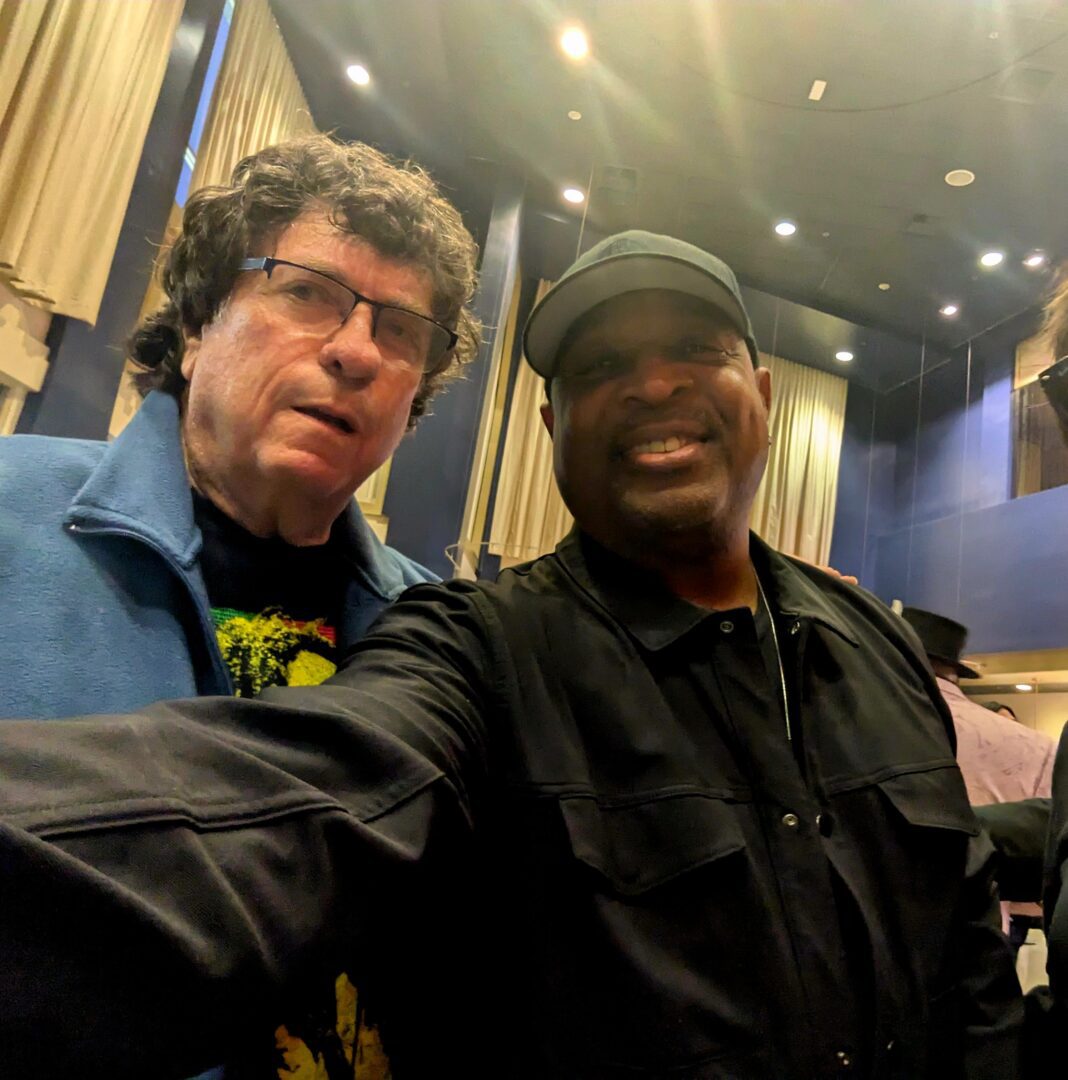
Q: At Fairfax High School the Father and Sons album Chess released with Muddy, Otis Spann, Sam Lay, Buddy Miles Paul Butterfield, Michael Bloomfield, and Donald “Duck” Dunn was the hit in the school hallway with longhairs and stoners. A few years ago, it was reissued by Universal Music Enterprises. The version of “Long Distance Call” is a mind blower.
A: Man, and live, you couldn’t see it, Muddy did this dance on ‘Got My Mojo Working’ that was unreal! Like Nureyev. He put down his guitar and did a pirouette. The place went wild! You can hear it on the record and hear the crowd when that happens.
But being around the blues, and all these records being made, and knowing the artists, I don’t know, man, it just, ya know, got into me. It just became part of me. It’s part of my life. I’ve never even considered it work. I appear and promote Chess and the blues in films and TV documentaries. I do as much as I can because I get a buzz out of it. I’m just amazed, man, that this music that we made in Chicago has become so historical.
Bill Graham was the greatest for that for the blues artists of that era. B.B. King on the bills. FM radio was a Godsend for the blues. The big commercial AM stations would not play the records at all except some black stations. And I decided to repackage Chess to that market that was getting stoned and going deep. It was a big boost when the English groups covered the music earlier. On records and at their shows. We loved it and something we thought could never happen.
Muddy Waters and B.B. King really dug white people doin’ their stuff. Sonny Boy was very much into white people doin his stuff. So was Howlin’ Wolf. I remember (Eric) Clapton gave him a fishing rod. Wolf was a real sportsman. He had fuckin’ huntin’ dogs that were a thousand dollars each. It blew our mind, of course it was a fantastic thing. We loved it. And we never thought that could happen. It was a total fantasy. But we first noticed it with the Muddy At Newport album came out. See, albums were not selling to black people. They didn’t have record players. I can remember we got all these orders from Boston on the Muddy album and we knew it was white people buying it. College kids. The first things we noticed as the album market developed.
Q: Who buys Chess Records this century?
A: Today the consumers are collectors, man, because they have credit cards. Who are blues fans? They are usually Jewish guys. Jewish with plastic. (Laughs). We’re kibitzing. They’re always been middle class. They’d buy 30 fuckin’ copies of Muddy Waters at a time when they first discovered him. Now I go around the fuckin’ world and talk about Chess and people kiss my ass. It’s always a pimply faced, middle aged, balding Jewish guy. Blues nerds!

